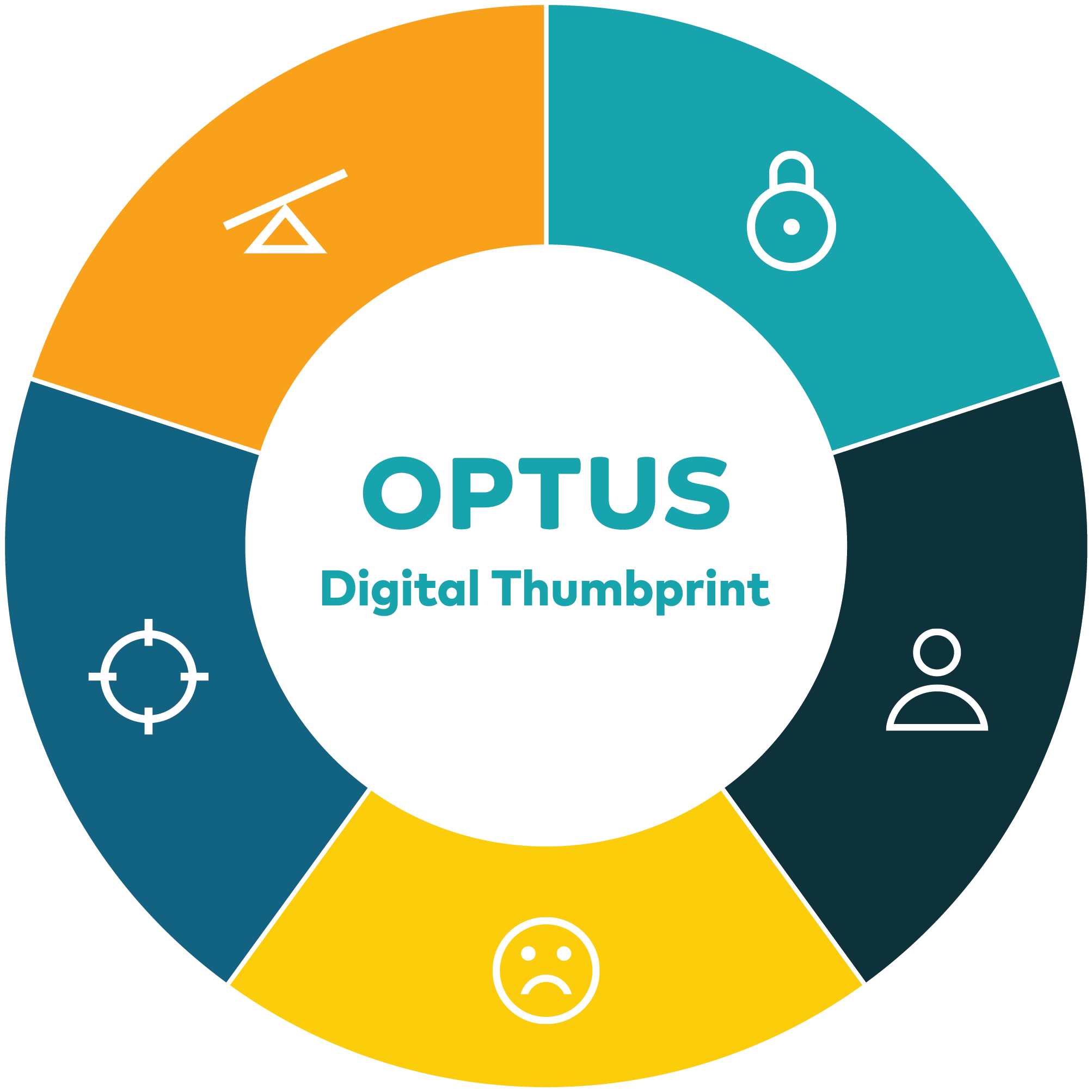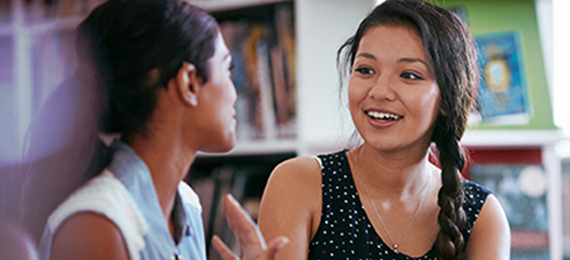Concepts Covered

Digital Discernment
Social media has the power to influence society, and our friends for the better. Work through scenarios and practice discernment to see through online media and problem solve for a safe and healthy online solution.
Key learnings:
- Understand what misleading content is and how it impacts our world
- Understand how to assess the credibility of information
- How to report harmful content and practice discernment to stay safe and informed online

“The Digital Thumbprint program was well delivered. The students were engaged and the information was relevant. I highly recommend it to other schools.”
Sally Atkins
Miller Technology High School, NSW
Curriculum Aligned
The Digital Discernment workshop directly addresses the Australian Curriculum 9.0 Digital Literacy capability through exploring how to:
- Manage online safety
- Manage digital privacy and identity
- Manage digital wellbeing
- Protect content
It also addresses aspects of the Personal and Social capabilities including:
- Self-awareness
- Self-management
- Social awareness
- Social management
With a focus on developing students’ critical literacy skills in relation to digital texts the following cross curriculum links apply:
Health & Physical education
- Critique health information, services and media messaging about relationships, lifestyle choices, health decisions and behaviours to evaluate their influence on individual attitudes and actions (AC9HP10P09)
- Investigate how media and influential people impact attitudes, beliefs, decisions and behaviours in relation to health, safety, relationships and wellbeing (AC9HP8P09)
- Plan and implement strategies, using health resources, to enhance their own and others’ health, safety, relationships, and wellbeing (AC9HP8P10)
- Plan, rehearse and evaluate strategies for managing situations where their own or others’ health, safety or wellbeing may be at risk (AC9HP10P08)
English
- Evaluating the ways ideas, attitudes and voices are represented, for example, how events are reported differently in the media (ACEEN029)
- Evaluating the choice of mode and medium in shaping the response of audiences, including digital texts (ACEEN003)
- Explaining how and why texts position readers and viewers. (ACEEN040)
- Use comprehension strategies such as visualising, predicting, connecting, summarising, monitoring, questioning, and inferring to analyse and summarise information and ideas (AC9E7LY05)
- Evaluating the impact of description and imagery, including figurative language, and still and moving images in digital and multimodal texts. (ACEEN007)
- Analysing how attitude and mood are created, for example, through the use of humour in satire and parody. (ACEEN027)
Technology Year 9 & 10
- 5.3.1- justifies responsible practices and ethical use of information and software technology
- 5.3.2- acquires and manipulates data and information in an ethical manner
- 5.4.1- analyses the effects of past, current and emerging information and software technologies on the individual and society
The Australian Curriculum F–10 includes three general capabilities:
- Literacy
- Numeracy
- Information and Communication Technologies (ICT)
The Victorian Curriculum F–10 design does not include these three general capabilities as separate learning areas or capabilities with discrete knowledge and skills. The ICT general capability skills are either specifically embedded in the content descriptions of Mathematics, Media Arts, Geography, English and Digital Technologies or schools have the flexibility to determine how these skills will be used in their teaching and learning programs for other curriculum areas.
Register for Digital Discernment
Digital Thumbprint is designed to run for 45-60 minutes and is delivered by our engaging facilitators at your school or online. For the most engaging experience, we recommend a workshop size of no more than 30 students.
Additional Workshops

Digital Identity
Understand the importance of your digital profile for future success.

Digital Balance
Improve your digital wellbeing and use technology in a meaningful way.







